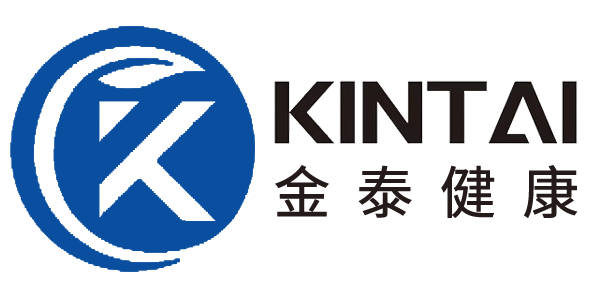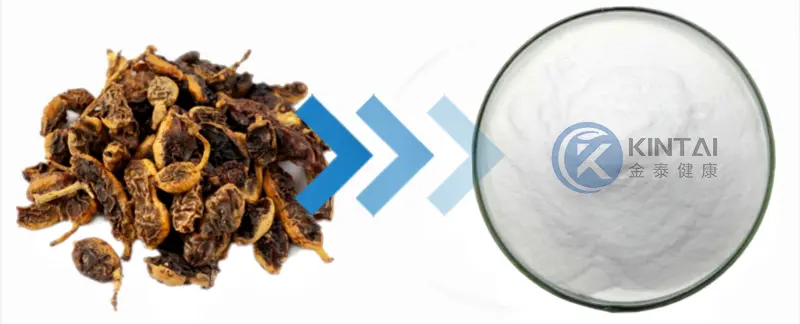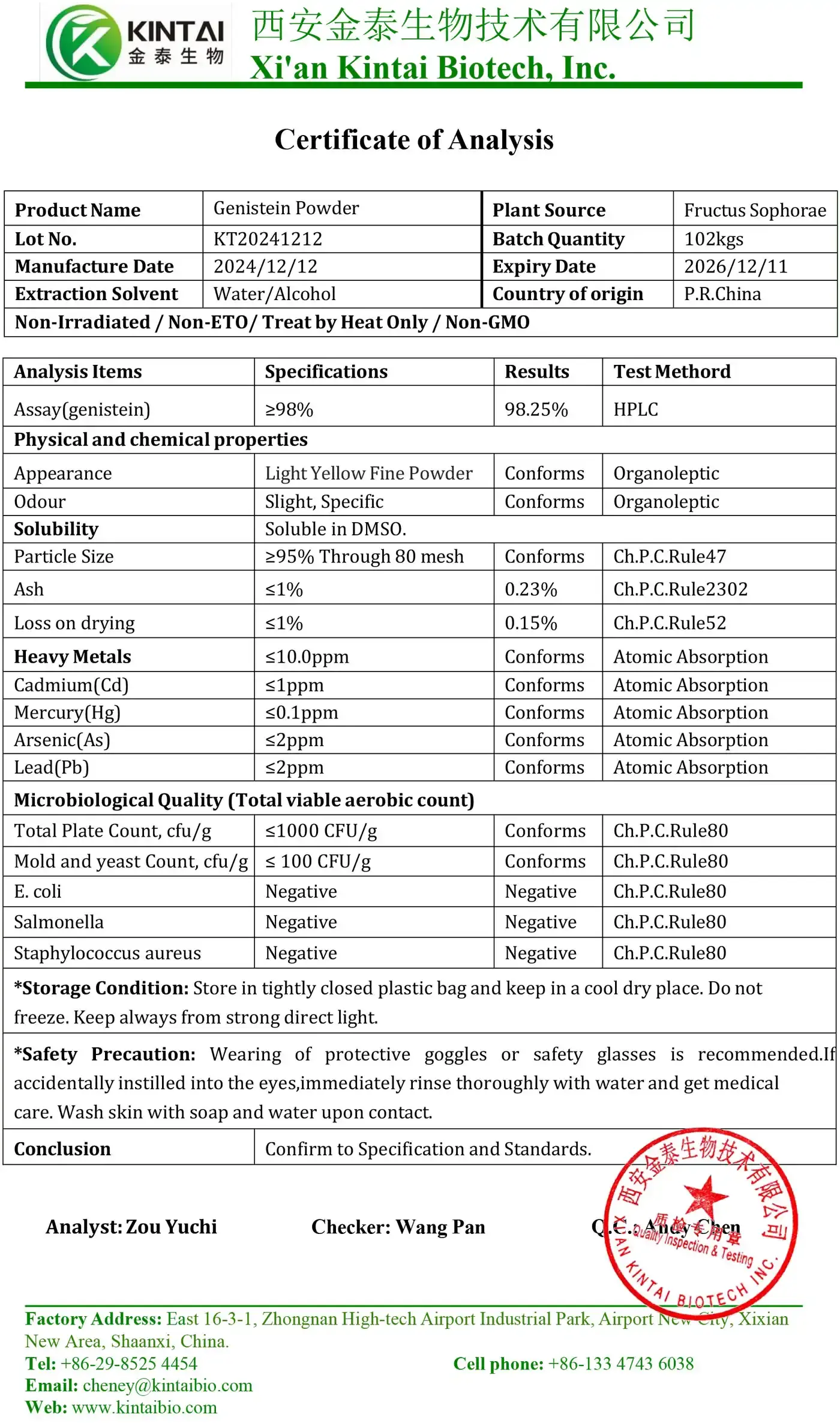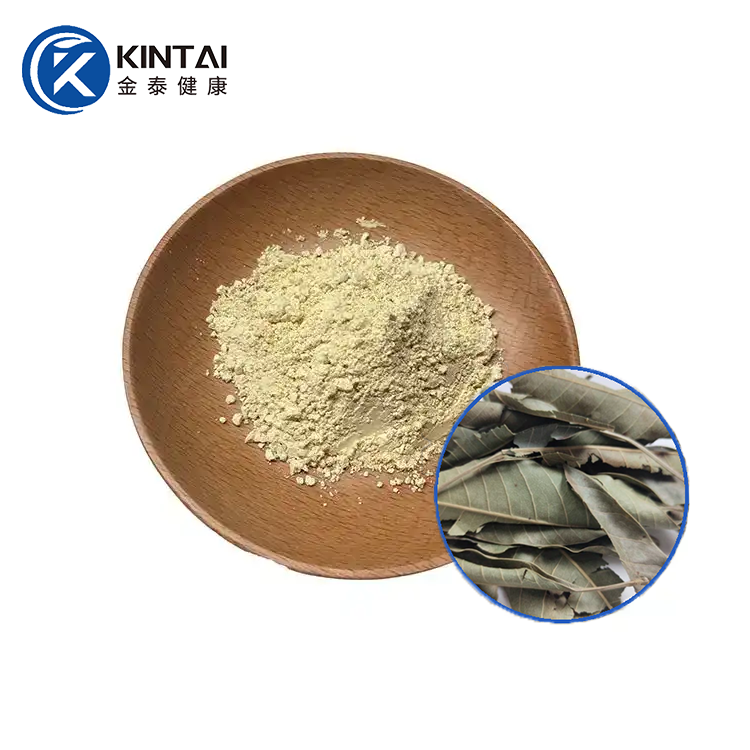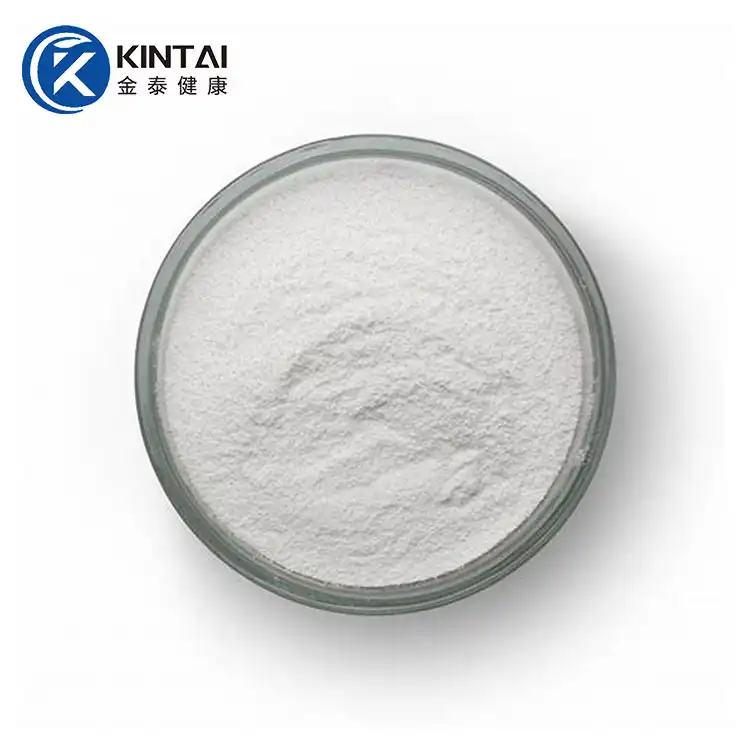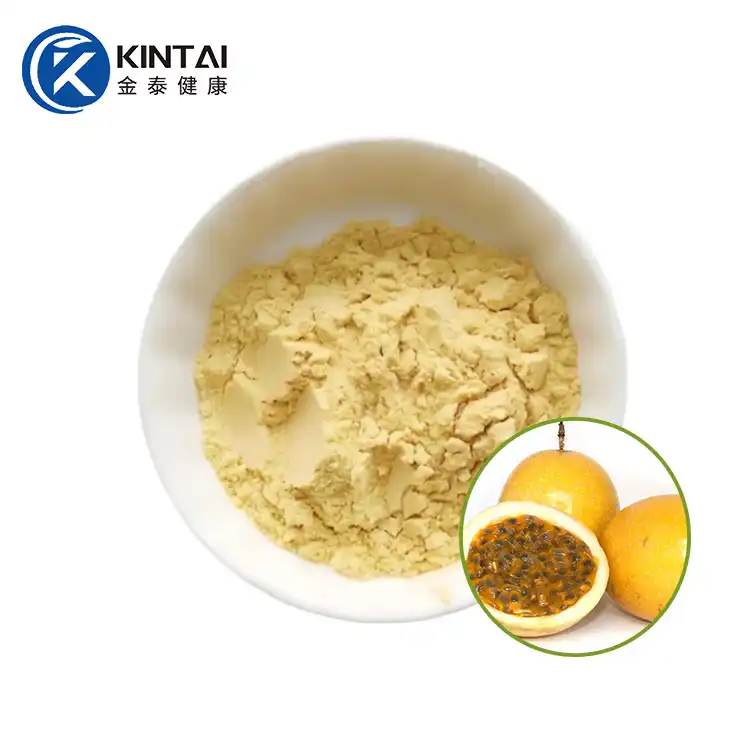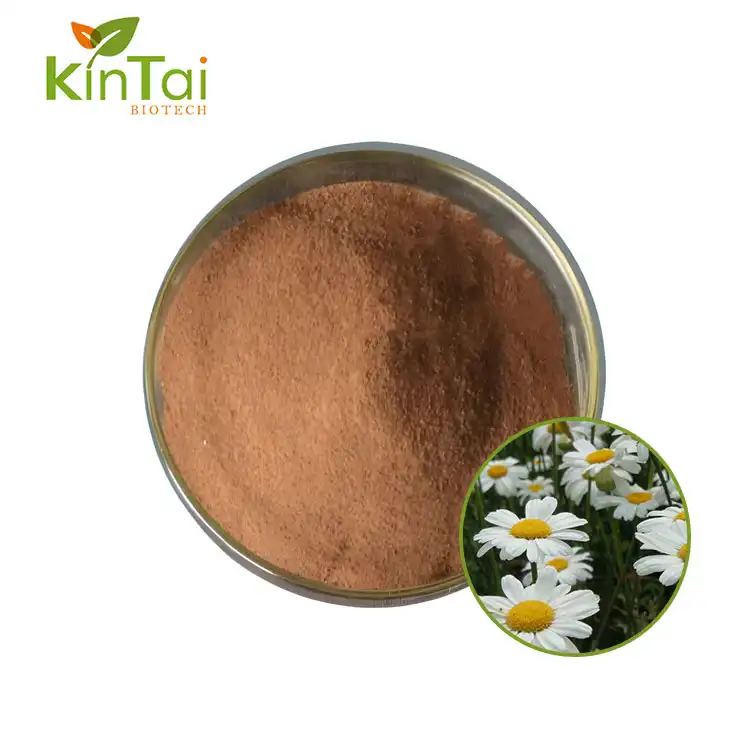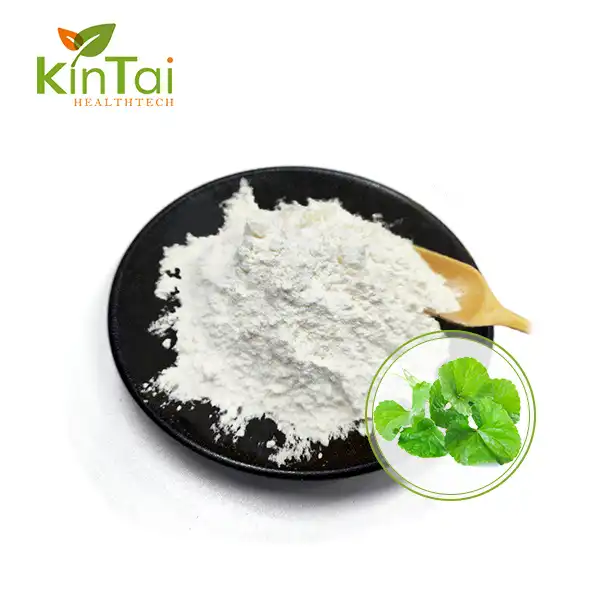Can Genistein Powder Help With Menopausal Symptoms?
2024-11-15 15:31:33
Can Genistein Powder Help With Menopausal Symptoms?
Menopause is a natural biological process that every woman experiences, typically in their late 40s or early 50s. This transition period can bring about various uncomfortable symptoms, including hot flashes, night sweats, mood swings, and decreased bone density. As women seek alternatives to traditional hormone replacement therapy, natural supplements like genistein powder have gained attention.
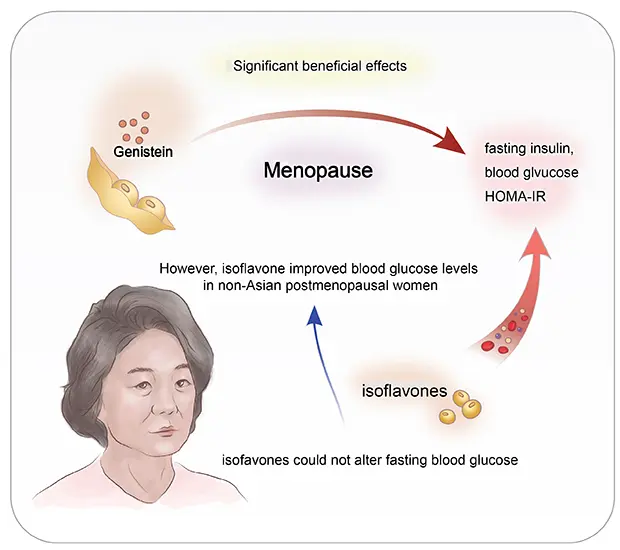
Genistein, a type of isoflavone found in soybeans and other legumes, has been studied for its potential benefits in alleviating menopausal symptoms. This article will explore the efficacy of genistein powder in managing menopausal discomfort and its overall impact on women's health during this transitional phase.Kintai's research highlights that genistein, a soy-derived isoflavone, may alleviate menopausal symptoms such as hot flashes and cognitive decline by mimicking estrogen activity. Clinical studies suggest its potential in reducing vasomotor symptoms and improving bone density in postmenopausal women, offering a plant-based alternative to traditional hormone replacement therapy.
What are the benefits of genistein for menopausal women?
1.Hot Flash Relief: One of the most common and bothersome symptoms of menopause is hot flashes. Studies have indicated that genistein supplementation can significantly reduce the frequency and severity of hot flashes. A randomized, double-blind, placebo-controlled trial found that women taking genistein experienced a 51% reduction in hot flashes compared to a 27% reduction in the placebo group.
2.Bone Health Support: Menopause often leads to a decrease in bone density, increasing the risk of osteoporosis. Genistein has been shown to have a positive effect on bone metabolism. It may help inhibit bone resorption and stimulate bone formation, potentially reducing the risk of osteoporosis-related fractures. A three-year study on postmenopausal women demonstrated that those taking genistein supplements had increased bone mineral density in the femur and lumbar spine compared to the placebo group.
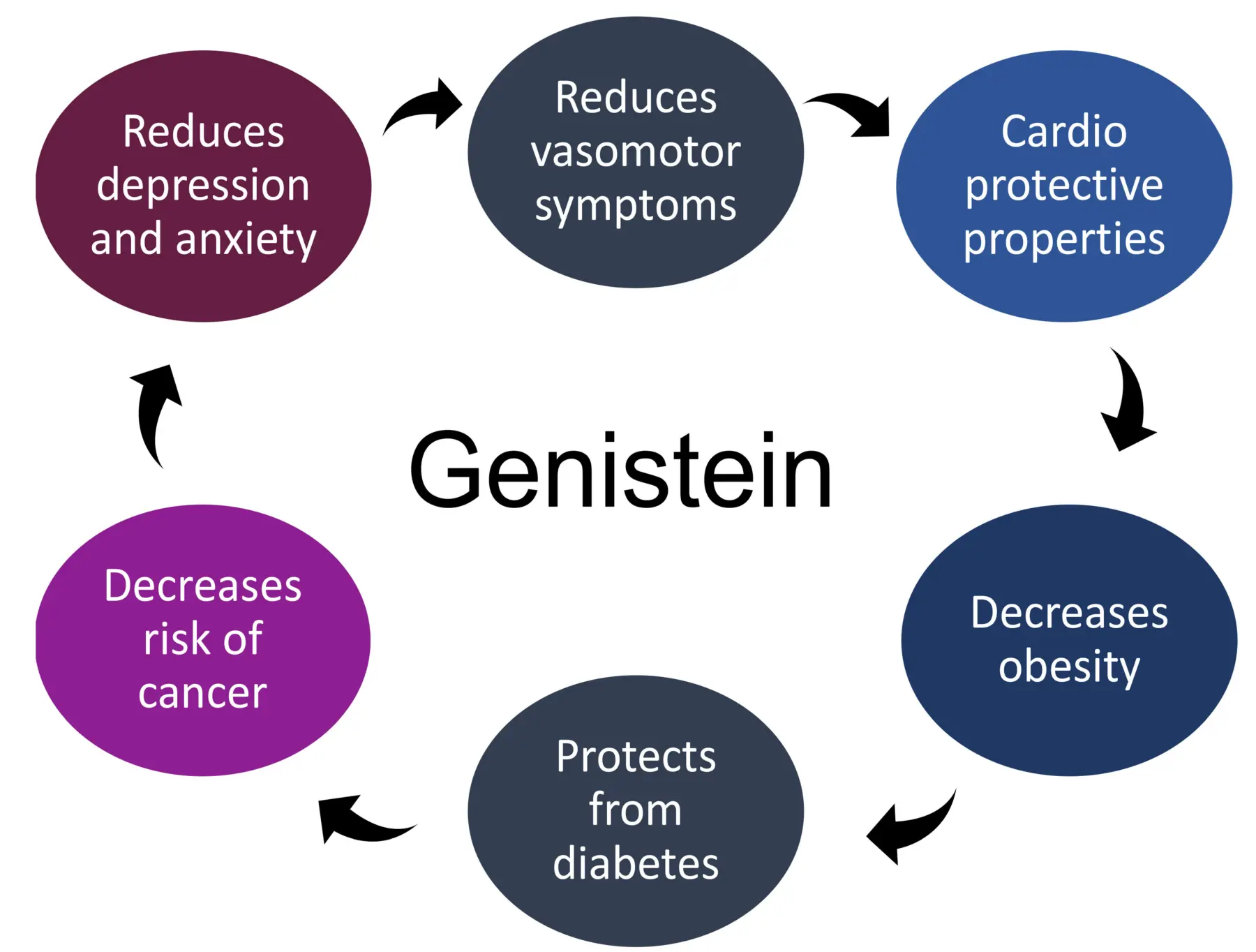
3.Cardiovascular Health: The decline in estrogen levels during menopause can increase the risk of cardiovascular diseases. Genistein has been associated with improved cardiovascular health by helping to lower LDL cholesterol levels and reduce arterial stiffness. These effects may contribute to a decreased risk of heart disease in postmenopausal women.
4.Cognitive Function: Some women report experiencing "brain fog" or cognitive decline during menopause. Preliminary research suggests that genistein may have neuroprotective properties, potentially helping to maintain cognitive function and reduce the risk of age-related cognitive decline.
5.Skin Health: Estrogen plays a crucial role in maintaining skin elasticity and hydration. As estrogen levels decrease during menopause, many women experience dry, itchy skin and accelerated skin aging. Genistein's estrogenic properties may help improve skin elasticity and hydration, contributing to a more youthful appearance.
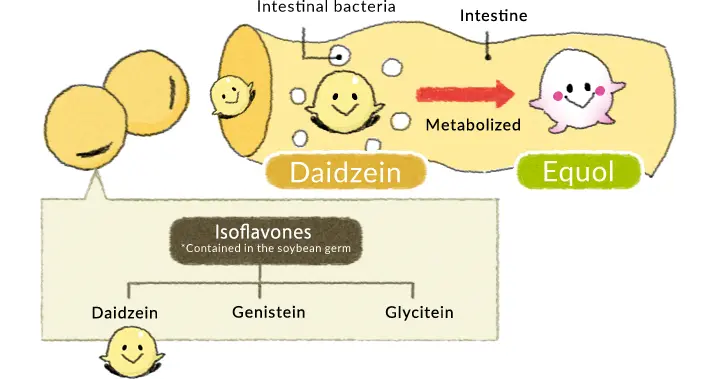
Contact us to get more details>>>
Is genistein powder safe for long-term use during menopause?
As more women turn to natural alternatives for managing menopausal symptoms, the long-term safety of genistein powder has become a topic of significant interest and research. While short-term studies have shown promising results with minimal side effects, it's crucial to examine the safety profile of genistein for extended use during the menopausal transition and beyond.
Several long-term studies have been conducted to assess the safety of genistein supplementation in postmenopausal women. A notable three-year randomized, double-blind, placebo-controlled study involving 389 postmenopausal women found that daily genistein supplementation (54 mg/day) was well-tolerated with no significant adverse effects on breast and endometrial tissues. This study provides valuable insights into the safety of genistein for extended periods.
The long-term impact of genistein on bone health is particularly relevant for postmenopausal women at risk of osteoporosis. Extended studies have demonstrated that genistein supplementation can help maintain bone mineral density and may reduce the risk of osteoporosis-related fractures. This positive effect on bone health appears to be sustained with continued use, suggesting a beneficial long-term safety profile for skeletal health.
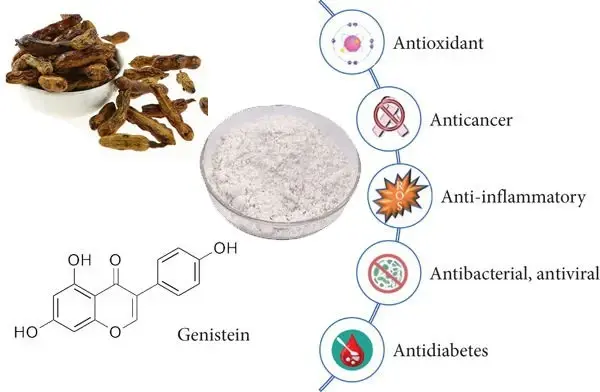
KINTAI Genistein Powder
As a trusted genistein powder supplier, Kintai provides products undergo rigorous HPLC testing, and partnerships with certified logistics firms ensure global air/sea shipment compliance, catering to pharmaceutical and nutraceutical clients worldwide.Kintai sources non-GMO soybeans from certified farms to ensure sustainable production. Their vertically integrated process—from raw material procurement to finished product packaging—guarantees traceability and consistency, positioning them as a preferred partner for global health brands.
References
Crisafulli A, et al. (2014). Effects of genistein on hot flushes in early postmenopausal women: a randomized, double-blind EPT- and placebo-controlled study. Menopause, 21(8), 851-858.
Marini H, et al. (2007). Effects of the phytoestrogen genistein on bone metabolism in osteopenic postmenopausal women. Annals of Internal Medicine, 146(12), 839-847.
Lissin LW, Cooke JP. (2000). Phytoestrogens and cardiovascular health. Journal of the American College of Cardiology, 35(6), 1403-1410.
Zaw JJT, et al. (2017). Benefits of soy isoflavone intake on bone health in women: A narrative review. Drug Design, Development and Therapy, 11, 1273-1279.
Morabito N, et al. (2002). Effects of genistein and hormone-replacement therapy on bone loss in early postmenopausal women: a randomized double-blind placebo-controlled study. Journal of Bone and Mineral Research, 17(10), 1904-1912.
Messina M. (2014). Soy foods, isoflavones, and the health of postmenopausal women. The American Journal of Clinical Nutrition, 100(Supplement_1), 423S-430S.
Taku K, et al. (2012). Effect of soy isoflavone extract supplements on bone mineral density in menopausal women: meta-analysis of randomized controlled trials. Asia Pacific Journal of Clinical Nutrition, 21(1), 33-42.
Squadrito F, et al. (2013). The effect of genistein on cardiovascular risk factors in postmenopausal women: a systematic review of randomized controlled trials. Climacteric, 16(6), 650-662.
Marini H, et al. (2008). Breast safety and efficacy of genistein aglycone for postmenopausal bone loss: a follow-up study. Journal of Clinical Endocrinology & Metabolism, 93(12), 4787-4796.
Franco OH, et al. (2016). Use of Plant-Based Therapies and Menopausal Symptoms: A Systematic Review and Meta-analysis. JAMA, 315(23), 2554-2563.
